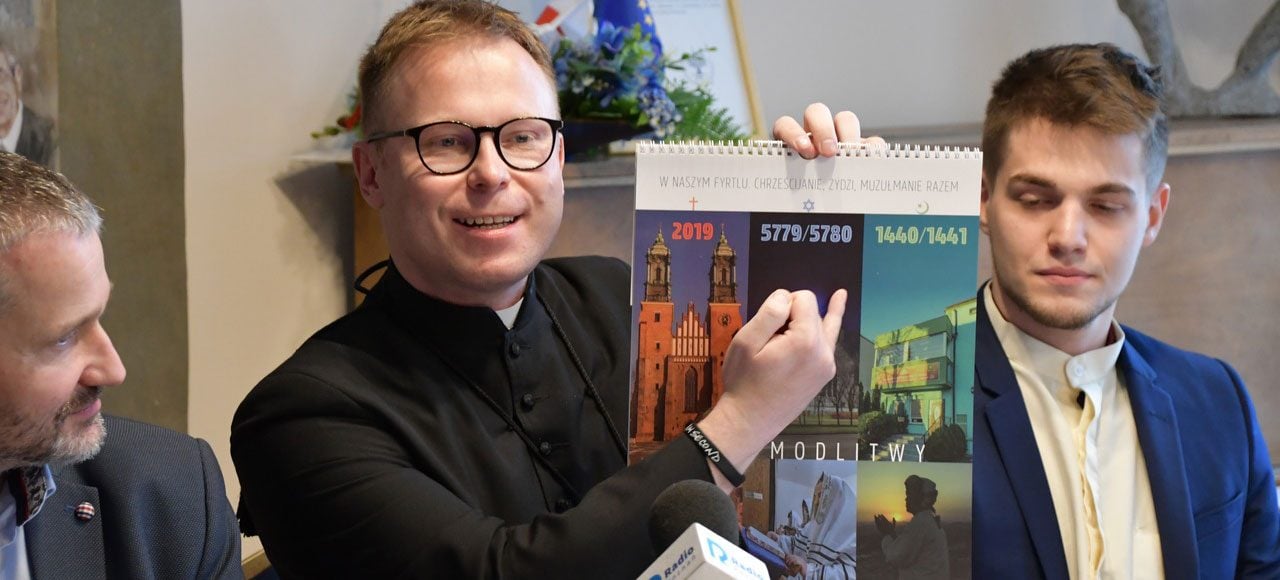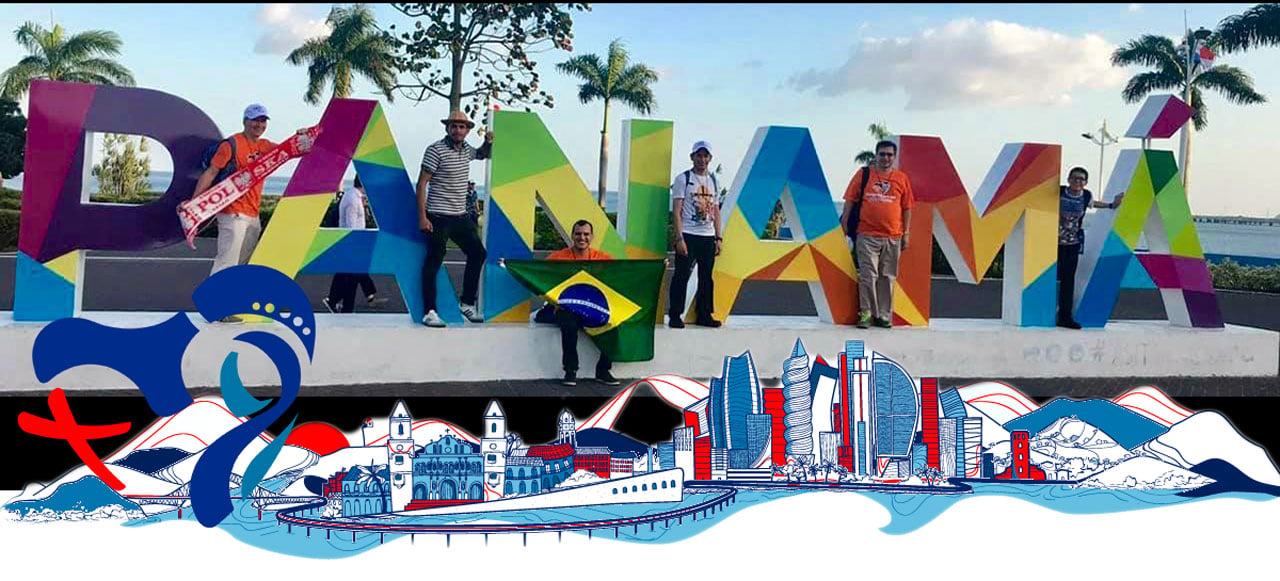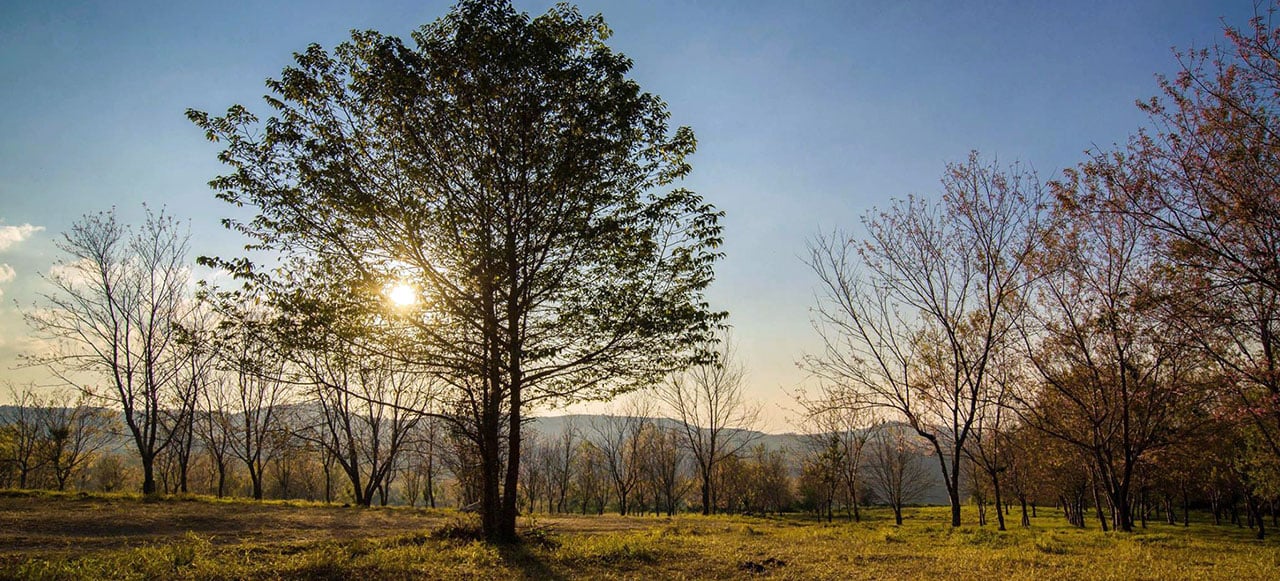Poland
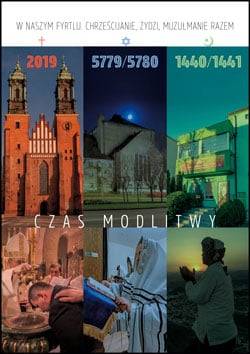
The Christian-Jewish dialogue and Christian-Muslim dialogue have been going on in Poznan for several years although the Jewish-Muslim dialogue began rather recently. These meetings, often in a cozy atmosphere, are conducted not only in the shadow of the synagogue, the mosque or the churches, but sometimes take place in surprising places like restaurants.
The first calendar of the three largest religions was established in Katowice and was the result of interreligious dialogue and ecumenical meetings conducted in that city. Last year, this idea found fertile ground in Poznan, where Christians, Muslims and Jews live side by side. It is the result of a series of meetings of Imam Youssef Chadid, the deputy Szymon Zadumiński and the Fr. Marcin Wrzos OMI. They co-created this calendar with the help of city authorities, their superiors and their religious communities.
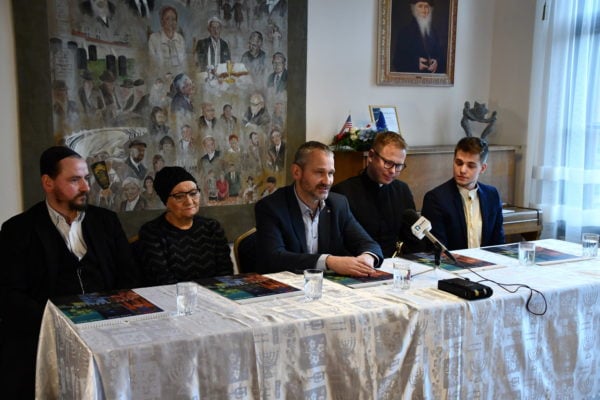
The Poznan calendar of three religions is special. It includes the history of the development of religion in Poznan. It contains the Julian calendar, but also the Muslim and Jewish calendars, based on different time calculations, dating back to the origin of the world (Jews) or the pilgrimage of the prophet Muhammed from Mecca to Medina (Muslims). It contains the most important feasts of the three religions; it gives details about their days of prayer (the Lord’s day, the Sabbath, the day of the congregation); it names the individual months. The calendar includes, above all, photographs related to Poznan, as well as explanations regarding particular celebrations and holidays of Christianity, Islam and Judaism. The calendar has been financed by the City of Poznan and is available for free. The idea of the calendar is a response to a call of the last General Chapter, which called for interreligious dialogue.
